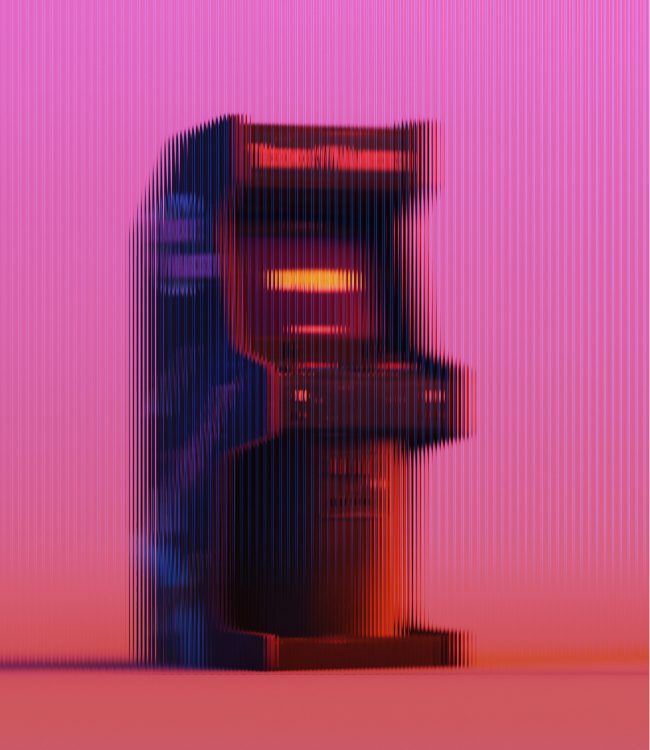In the past, toys were primarily associated with children and their world of imagination. Nowadays, things are changing. Just in the past couple of years, the toy industry has undergone a quiet revolution with a growing share of its consumers becoming adults who buy toys not for the youngsters, but themselves. Here is what the new «kidult» trend is about.
WHO ARE KIDULTS?
The term «kidults» refers to a growing demographic of adults who enjoy and collect toys. Many kidults are hobbyists who collect toys for their rarity, aesthetic appeal, or connection to their favorite franchises or characters. The latest statistics shows that this group of consumers is responsible for approximately $9 billion of the annual toy market sales.
CATALYSTS FOR THE KIDULT TREND
Nostalgia
Nostalgia plays a significant role in the rise of the kidult trend. For many adults, buying toys is a way to reconnect with their childhood and reclaim the things they had or wanted when they were kids. Recent surveys demonstrate that nostalgia can significantly influence consumer behavior, as over 50% of U.S. adults state that they are more likely to purchase a product that makes them nostalgic for the past.
Pandemic
The pandemic had a big impact on almost every industry out there, but its effect on the toy market was quite unusual. With more stress and uncertainty in the world, many adults looked for ways to relax and find a distraction. Surprisingly, a lot of them turned to toys for comfort.
A report by The NPD Group, a company that collects global information, showed that the toy industry in the United States had a noticeable increase in sales in 2020, growing by 16% compared to the previous year. What’s more, about 20% of these toy sales were made to people aged 18 and above, showing that the trend of kidults had a major boost exactly during the early pandemic period. In the UK, a survey conducted by The Toy Association in 2021 found that 41% of adults had purchased a toy for themselves in the past year.
However, in many countries, the market for adult toys had been expansive even before the pandemic. For instance, in Japan, kidults are known as ’otaku’ and the market of toys targeted at this demographic is estimated to be worth billions of dollars.
KIDULT BRANDS
The increasing number of kidults is driving the demand for more sophisticated and nostalgic toys. The collectible toy market, which includes action figures, dolls, and other memorabilia, is growing rapidly. According to reports, the global collectible toy market is expected to grow 10.1% CAGR up to 2032.
Companies are responding to this demand by creating high-end, collectible versions of classic toys and characters. Here are several notable examples of brands embracing the kidult trend.
KAWS
KAWS is a renowned artist and designer whose works span from table-top toys to sculptures, graffiti, and paintings. His visual language, rooted in cartoons, resonates with the generation that grew up with these characters. KAWS’ most famed creation, Companion, is a Mickey Mouse-inspired figure with a massive collectorship value. The artist’s unique style has solidified his position as a favorite among kidults worldwide.
Be@rbrick
Be@rbrick is a popular collectible toy brand created by the Japanese company Medicom Toy. Be@rbrick’s popularity among kidults can be attributed to unique designs and inspiration from classic toys, cartoons, and other pop culture references. This fusion of childhood memories and eye-catching design creates a strong emotional connection with collectors, who appreciate the blend of old and new.
Leblon Delienne
Leblon Delienne is a French workshop that creates custom figurines, sculptures, furniture, and art objects featuring pop culture characters like Mickey Mouse and Hello Kitty. The artworks crafted by the brand merge nostalgia with contemporary design, creating unique collectibles that are sold for thousands of dollars. A wide selection of options have made it a go-to brand for adult pop culture enthusiasts.
Hasbro
Hasbro has seen significant success with its retro line of Star Wars action figures, which replicate the original designs from the 1970s and 1980s. To further leverage the booming adult market for board games, Hasbro introduced a streaming channel dedicated to Dungeons & Dragons.
The company is also prioritizing fresh ideas and tailoring its products — physical toys, programs, films, and games alike — designed with older consumers in mind.
Mattel
In a similar vein to Hasbro, Mattel is setting its sights on the lucrative kidult market. Their recent live-action Barbie movie starring Margot Robbie is a clear play for nostalgic adults who grew up with the iconic doll. The company even set up a store dedicated specifically to pricey collectibles, including Margo Robbie’s Pink Corvette from the movie. There is no doubt that Mattel is following the right strategy, as kidults are willing to pay premium prices for high-quality, limited-edition, or exclusive toys.
Funko
Funko, a leading pop culture consumer products company, has successfully tapped into the kidult market by offering Pop! vinyl figures, which feature characters from various movies, TV shows, comics, and games. The company’s focus on limited editions, exclusives, and collaborations allows it to position itself as a go-to brand for the adult demographic. The brand is so popular among adults that it absolutely dominates the Kidult category of products sold in the online store of Toys R Us, the largest toy vendor in the United States and Canada.
CONCLUSION
The rise of the kidult trend has ushered in fresh opportunities for new brands to disrupt the toy industry. This is already evident with the emergence of kidult-specific brands on platforms like Etsy. The success of these up-and-coming brands will largely depend on their ability to tap into the nostalgia factor through their marketing initiatives.
In the past, toys were primarily associated with children and their world of imagination. Nowadays, things are changing. Just in the past couple of years, the toy industry has undergone a quiet revolution with a growing share of its consumers becoming adults who buy toys not for the youngsters, but themselves. Here is what the new «kidult» trend is about.
WHO ARE KIDULTS?
The term «kidults» refers to a growing demographic of adults who enjoy and collect toys. Many kidults are hobbyists who collect toys for their rarity, aesthetic appeal, or connection to their favorite franchises or characters. The latest statistics shows that this group of consumers is responsible for approximately $9 billion of the annual toy market sales.
CATALYSTS FOR THE KIDULT TREND
Nostalgia
Nostalgia plays a significant role in the rise of the kidult trend. For many adults, buying toys is a way to reconnect with their childhood and reclaim the things they had or wanted when they were kids. Recent surveys demonstrate that nostalgia can significantly influence consumer behavior, as over 50% of U.S. adults state that they are more likely to purchase a product that makes them nostalgic for the past.
Pandemic
The pandemic had a big impact on almost every industry out there, but its effect on the toy market was quite unusual. With more stress and uncertainty in the world, many adults looked for ways to relax and find a distraction. Surprisingly, a lot of them turned to toys for comfort.
A report by The NPD Group, a company that collects global information, showed that the toy industry in the United States had a noticeable increase in sales in 2020, growing by 16% compared to the previous year. What’s more, about 20% of these toy sales were made to people aged 18 and above, showing that the trend of kidults had a major boost exactly during the early pandemic period. In the UK, a survey conducted by The Toy Association in 2021 found that 41% of adults had purchased a toy for themselves in the past year.
However, in many countries, the market for adult toys had been expansive even before the pandemic. For instance, in Japan, kidults are known as ’otaku’ and the market of toys targeted at this demographic is estimated to be worth billions of dollars.
KIDULT BRANDS
The increasing number of kidults is driving the demand for more sophisticated and nostalgic toys. The collectible toy market, which includes action figures, dolls, and other memorabilia, is growing rapidly. According to reports, the global collectible toy market is expected to grow 10.1% CAGR up to 2032.
Companies are responding to this demand by creating high-end, collectible versions of classic toys and characters. Here are several notable examples of brands embracing the kidult trend.
KAWS
KAWS is a renowned artist and designer whose works span from table-top toys to sculptures, graffiti, and paintings. His visual language, rooted in cartoons, resonates with the generation that grew up with these characters. KAWS’ most famed creation, Companion, is a Mickey Mouse-inspired figure with a massive collectorship value. The artist’s unique style has solidified his position as a favorite among kidults worldwide.
Be@rbrick
Be@rbrick is a popular collectible toy brand created by the Japanese company Medicom Toy. Be@rbrick’s popularity among kidults can be attributed to unique designs and inspiration from classic toys, cartoons, and other pop culture references. This fusion of childhood memories and eye-catching design creates a strong emotional connection with collectors, who appreciate the blend of old and new.
Leblon Delienne
Leblon Delienne is a French workshop that creates custom figurines, sculptures, furniture, and art objects featuring pop culture characters like Mickey Mouse and Hello Kitty. The artworks crafted by the brand merge nostalgia with contemporary design, creating unique collectibles that are sold for thousands of dollars. A wide selection of options have made it a go-to brand for adult pop culture enthusiasts.
Hasbro
Hasbro has seen significant success with its retro line of Star Wars action figures, which replicate the original designs from the 1970s and 1980s. To further leverage the booming adult market for board games, Hasbro introduced a streaming channel dedicated to Dungeons & Dragons.
The company is also prioritizing fresh ideas and tailoring its products — physical toys, programs, films, and games alike — designed with older consumers in mind.
Mattel
In a similar vein to Hasbro, Mattel is setting its sights on the lucrative kidult market. Their recent live-action Barbie movie starring Margot Robbie is a clear play for nostalgic adults who grew up with the iconic doll. The company even set up a store dedicated specifically to pricey collectibles, including Margo Robbie’s Pink Corvette from the movie. There is no doubt that Mattel is following the right strategy, as kidults are willing to pay premium prices for high-quality, limited-edition, or exclusive toys.
Funko
Funko, a leading pop culture consumer products company, has successfully tapped into the kidult market by offering Pop! vinyl figures, which feature characters from various movies, TV shows, comics, and games. The company’s focus on limited editions, exclusives, and collaborations allows it to position itself as a go-to brand for the adult demographic. The brand is so popular among adults that it absolutely dominates the Kidult category of products sold in the online store of Toys R Us, the largest toy vendor in the United States and Canada.
CONCLUSION
The rise of the kidult trend has ushered in fresh opportunities for new brands to disrupt the toy industry. This is already evident with the emergence of kidult-specific brands on platforms like Etsy. The success of these up-and-coming brands will largely depend on their ability to tap into the nostalgia factor through their marketing initiatives.
Get in touch today to discuss how we can help your brand stay ahead
recommended reading

Content Marketing For Online Casinos Or Top Affiliates Gambling Industry Content Hacks || THE REACH.
.jpg)





